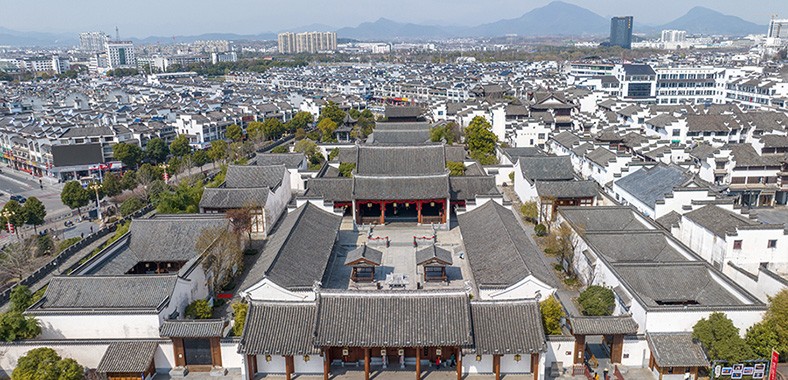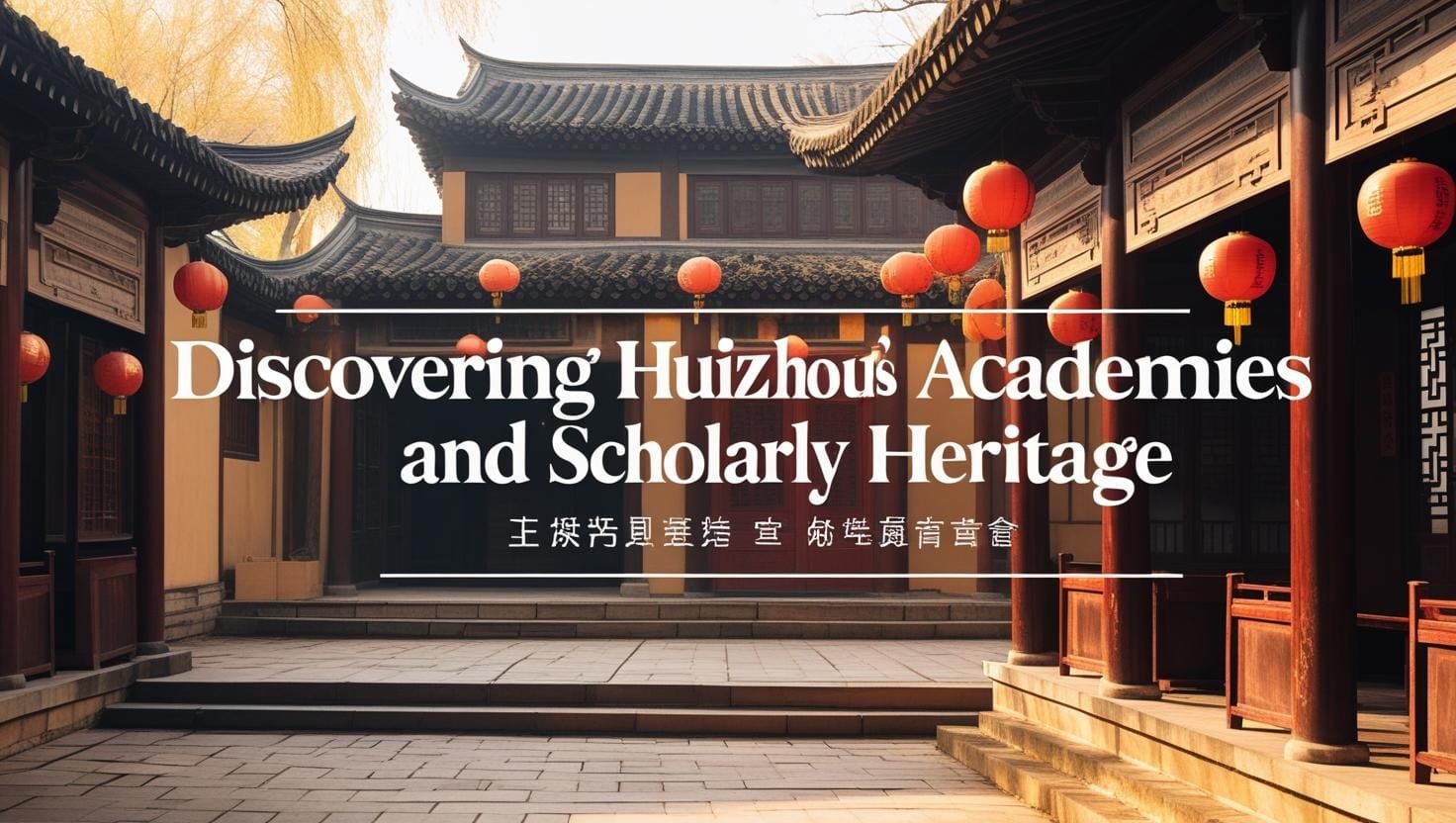Discovering Huizhou’s Ancient Academies and Scholarly Heritage

Welcome to the captivating world of Huizhou, a hidden gem in Anhui Province that beckons travelers, history buffs, and culture enthusiasts alike. Here, you’ll uncover the rich tapestry of Huizhou Ancient Academies, where ancient wisdom meets breathtaking landscapes. As you delve into Huizhou historical landmarks, China scholarly history, and the array of cultural attractions in Huizhou, you’ll gain a deeper appreciation for this region’s role in shaping China heritage tours. At jusha.travel, we’re passionate about guiding you through these experiences, sharing insider tips to make your China adventure unforgettable and inspiring.
Imagine wandering through serene courtyards where scholars once debated philosophy under the stars. Whether you’re a first-time visitor or a seasoned explorer, this guide will serve as your ultimate Huizhou travel guide, blending history with practical advice to enhance your journey.
Huizhou’s Educational Flourish and Cultural Foundation

Huizhou’s story begins with its remarkable rise during the Southern Song Dynasty (1127–1279), a period when the region became a hub of intellectual and economic prosperity. Unlike many areas focused on agriculture or warfare, Huizhou’s wealthy merchants channeled their resources into education and scholarship, fostering an environment where learning was not just valued but celebrated. This era laid the groundwork for the Huizhou Ancient Academies, institutions that embodied the essence of China scholarly history.
One key aspect is the influence of Huizhou’s mercantile class, who invested in academies and private schools. Historical records show that during the Ming Dynasty, Huizhou boasted over 52 academies and 462 private schools (source). These centers were more than mere classrooms; they were vibrant communities where Confucian values intertwined with local customs, promoting moral self-cultivation and social mobility through the imperial examination system.
For travelers planning a China heritage tour, visiting sites like the ancient villages of Shexian offers a glimpse into this legacy. A practical tip: Time your visit for spring or autumn to avoid crowds and enjoy milder weather, making it easier to explore these landmarks on foot. And don’t forget to sample local Anhui cuisine, such as the hearty Hui-style stinky tofu, which reflects the region’s innovative spirit—much like how scholars innovated in their studies.
The Xin’an Li Theory and Philosophical Influences

Diving deeper into Huizhou historical landmarks, we encounter the philosophical heart of the region through the Xin’an Li school, a cornerstone of cultural attractions in Huizhou. This Neo-Confucian movement emphasized ethics, filial piety, and public service, shaping the intellectual landscape that defined the academies.
A standout figure is Zhu Xi (1130–1200), a philosopher with ancestral ties to Huizhou, whose teachings revolutionized China scholarly history (source). His ideas encouraged critical thinking and self-improvement, influencing academy curricula and inspiring generations. Imagine standing in a hall where his principles were debated—it’s a humbling experience that connects you to China’s enduring philosophical traditions.
If you’re curious about technology’s role in preserving this heritage, modern apps and virtual tours, like those available on platforms discussed in architectural journals (source), allow you to explore these sites remotely before your trip. For a hands-on adventure, join a guided tour in Huizhou; many operators provide English translations and cultural insights, making it accessible for international visitors. Pro tip: Pack a notebook to jot down thoughts—much like ancient scholars did—while enjoying a cup of local green tea, a staple in Huizhou’s tea culture that symbolizes reflection and community.
Architectural Wonders and Cultural Attractions

No exploration of Huizhou Ancient Academies is complete without marveling at the architectural feats that encapsulate cultural attractions in Huizhou. The region’s buildings, funded by prosperous merchants, blend functionality with artistry, featuring intricate wood carvings and elegant designs that symbolize scholarly ideals (source).
Historic villages like Lucun showcase halls such as Zhicheng Hall, which served as both family residences and educational centers. These structures are prime examples of Huizhou historical landmarks, where clan-based organizations fostered a sense of community and learning. As you wander through, you’ll notice how architecture reflects Confucian harmony, with symmetry and natural elements promoting balance.
For practical travel advice, consider combining your visit with nearby Huangshan Mountain for a full immersion in Anhui’s wonders—perfect for a Huizhou travel guide itinerary. If you’re into food, try the famous Huizhou-style smoked duck, which pairs wonderfully with the scholarly theme of indulgence in life’s finer aspects. Fun fact: Many of these sites have been recognized in recorded expeditions, highlighting Huizhou’s status as a cultural hub (source).
Preserving Legacy: Modern Relevance and Heritage Tours
Huizhou’s scholarly heritage isn’t confined to the past; it’s alive in today’s China heritage tours, where visitors can engage with ongoing preservation efforts. As a center for “Huizhou Studies,” the region continues to influence modern interpretations of Chinese philosophy and culture (source).
This legacy has produced generations of officials and thinkers, and now, through interactive exhibits and digital archives, it’s accessible to global audiences. For instance, apps that offer augmented reality experiences let you visualize ancient academies as they once were, blending technology with tradition—a nod to China’s innovative spirit.
As part of your Huizhou travel guide, we recommend participating in a heritage workshop or festival, where you can learn calligraphy or discuss Confucian texts. It’s a fantastic way to connect with locals and gain cultural insights. Remember, sustainable travel is key—support eco-friendly tours to help preserve these sites for future generations.
In conclusion, exploring Huizhou Ancient Academies offers a profound journey through China scholarly history, revealing the intersections of education, culture, and daily life in one of China’s most intriguing regions. From the bustling markets to the tranquil halls, these cultural attractions in Huizhou and historical landmarks inspire a deeper connection to the past, making your China heritage tours truly transformative.
Here at jusha.travel, we love sharing tips to make your China journey unforgettable! If this post has sparked your interest, we invite you to share your thoughts in the comments below, visit jusha.travel for more inspiring guides, or explore related articles like our pieces on Huangshan adventures. Safe travels, and let’s keep the spirit of discovery alive!

